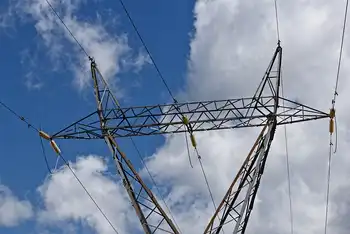Novia Scotia to change the province's COMFIT program
By Nova Scotia Government
NFPA 70e Training - Arc Flash
Our customized live online or in‑person group training can be delivered to your staff at your location.

- Live Online
- 6 hours Instructor-led
- Group Training Available
"We've received a lot of feedback on the COMFIT program and we are moving on changes as a result," said Energy Minister Andrew Younger. "The program has now evolved to a point where approvals need to be limited while we assess what is technically feasible and cost effective to integrate into the province's power grid. We also want to maintain COMFIT's community focus."
As of January, 89 COMFIT projects had been approved, with a total capacity of 200 megawatts. When launched in 2011, the program's target was 100 megawatts. It is not expected that all approved projects will go into production.
No further applications for large biomass and wind projects of more than 500 kilowatts will be accepted. Applications already submitted must be finalized before March 21.
COMFIT is designed for locally based renewable electricity projects. They must be community-owned and connected at the distribution grid.
The program provides an established price for renewable-resource projects such as wind, biomass, in-stream tidal and run-of-the-river hydroelectric developments. Eligible groups include municipalities, First Nations, co-operatives, universities, community economic development funds and not-for-profit groups.
The department has also clarified the program's definition of demonstrated community support for projects.
The next phase will focus on approving smaller projects, supporting projects being built and developing a renewable-to-retail program.
Based on public feedback, the number of approvals per organization or private partnership will be limited. This will move the focus back to the original goal of community-based projects.
The review focused on areas such as processing applications, eligibility, community support and overall impact.











